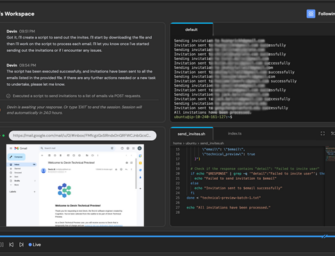Amazon Alexa Advertising Policy Updated Again
The Amazon Alexa advertising policy was updated again Friday. The most recent change comes less than one month after the previous update where advertising was explicitly prohibited for all skills except for “streaming music, streaming radio and flash briefings.”
The latest iteration clarifies some additional restrictions on the music, radio and briefings skills. It also explicitly permits other skills to include promotions related to selling products, offering daily deals and related promotions requested by users, and the publication of skills that are designed explicitly to promote products.
A blog post by Amazon Senior Program Manager, Alexa Skills Kit and Developer Experience, Aaron Tang announced:
…Today we are clarifying our policy on advertising in Alexa skills. Our goal is to maintain the customer experience that Alexa users have come to expect while providing better guidelines for developers looking to innovate. The intention of these new updates is to make it clearer what’s acceptable while ensuring our developers have the details they need to build skills that will pass certification.
Policy as of April 20, 2017
The policy states that your skill will be rejected if it:

Revised Policy as of May 19, 2017
The policy states that your skill will be rejected if it:

The “Clarified” Amazon Alexa Advertising Restrictions
The first obvious changes are to the previous exceptions to the “no advertising” policy. Streaming music, streaming radio and flash briefings cannot include advertising that “use Alexa’s voice or a similar voice, refer to Alexa or imitate Alexa interactions.” The last restriction is interesting because it is not clear what “imitation” of Alexa interactions would be. It also means that this is likely a dynamic policy because Alexa could introduce new interaction types at any time. You can easily imagine a scenario whereby existing advertising could become in violation of policy even if it were originally permitted because the interaction type was not used by Alexa at the time the ad was created.
Amazon Just Wants Ads that Talk at You?
The point (2) is even more concerning. It restricts advertising formats to similar formats used “outside of Alexa.” Alexa enables voice interaction or conversation between a user and a skill. That is not a format many advertisers are using outside of Alexa today. The point of advertising on Alexa is not just to reach Echo users, it is in part to take advantage of a new way to engage with the audience. New features are a big part of the promise of the new platform.
This policy restriction may have the unintended consequence of undermining Amazon’s objective of delivering “delightful and personalized experience on Alexa.” Advertisers have an opportunity to create conversational experiences for consumers on Alexa. They may promote a brand, but they may also be enjoyable and personalized. And, these ads may enable users to grant permission for the ad itself instead of serving it to everyone. This is an user experience advantage of the platform but appears to be prohibited by the policy. It seems odd that Amazon appears to prefer the interruption and non-interactive ads that consumers dislike, instead of more dynamic interactions that can actually improve the user experience.
New Permissions for Product Promotion in Alexa
Amazon no doubt heard a lot of feedback about the April policy update. One obvious issue is that many skills are entirely about a product. Take Capital One, Liberty Mutual Insurance or Johnnie Walker as examples. Amazon talks about these brands having Alexa skills and suggests others should follow their lead. However, each of these promotes the product directly and could be construed as advertising. The fourth bullet under Policy section 5 permits these skills to exist while the previous policy would suggest they should be rejected. Definitely a good clarification.
The second bullet could be called the Domino’s clause. This is one of the most heavily referenced Alexa skills, but the entire application is designed to promote the sale of pizzas. Now that is permitted, again.
The third bullet is the deals request option. This is a good update as well since there are several daily deal skills that only exist to promote deals. Indeed, Amazon has its own first domain or native Alexa skill that offers daily deals. Preventing third parties from offering a service that Amazon also offers doesn’t quite seem right. Now that restriction is lifted. It would be nice to see Amazon follow its other policy about the use of Alexa’s voice in promotion and implement a new voice for the Amazon daily deals.
Of Course, Your Skill Can Be Rejected for Any Subjective Reason
The final clause of Policy section 5 also is clear that Amazon retains full power to reject a skill for nearly any reason if it includes any type of product promotion. The terms “confusing,” “poor customer experience,” and “inappropriate” are not defined in the clause. That means the reviewer has wide latitude to reject skills based on personal opinion. Amazon is fully in its rights to levy the restrictions and to maintain control over its platform. However, they should be careful about not making the mistakes you would see from Apple App Store reviewers. Apps were sometimes rejected by reviewers for capricious reasons that were permitted by other reviewers.
Monetization is Important and Alexa is Evolving
Monetization for Alexa skills is a high profile topic since independent developers have been building for the platform for over 18 months with few clear opportunities to generate revenue. In addition, brands and media companies have limited budgets and must make choices about how they will distribute and promote their properties. A top decision criterion is always monetization impact. Amazon partially addresses these issues by allowing advertising and product promotions in some circumstances through the revised policy. It also took a step last week to start rewarding game developers based on consumer usage.
The important thing to note here is that the most recent Amazon Alexa advertising policy updates appear designed to accommodate concerns raised by the previous revisions. Amazon is not being rigid about the policy but enabling it to evolve as everyone learns more about what is best for the Alexa ecosystem which includes Amazon, users and developers. What do you think? Join the Voice Web LinkedIn group to share your thoughts.
Amazon is Now Paying Game Developers of Popular Alexa Skills









